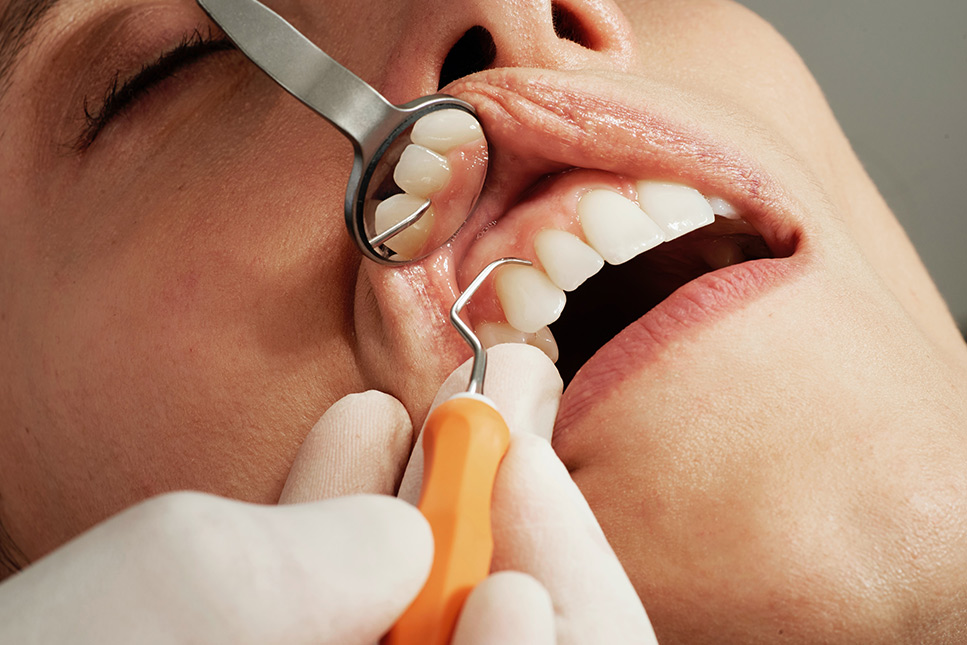
You noticed blood when you spit in the sink after brushing your teeth and maybe it scared you a little bit. Bleeding gums can occur for different reasons, some being more serious than others. It's important to discuss any chronic gum bleeding with your dentist, but don't worry yet. Some of the reasons your gums might bleed include:
1. Gingivitis
Gingivitis is a type of gum disease that occurs when the part of your gums that holds your teeth (gingiva) gets swollen and often painful (itis). Gingivitis can be caused by plaque buildup on your teeth. Plaque comes from not brushing your teeth regularly or not brushing quite well enough, even overnight. When you feel a film on your teeth when you wake up, that is a plaque in the making.
2. Tartar
You can develop tartar if plaque is not removed. It then becomes hard and grows under your gum line. This can require the use of special tools by the dental hygienist. If your tartar buildup is too advanced, your periodontist in Vancouver might suggest that your gum disease be treated with scaling and root planing. This treatment involves removing plaque and tartar (scaling) and then smoothing out your tooth roots (planing). Depending on the extent of your gum disease, your dentist might choose to do this in increments one-quarter of your mouth at a time.
3. Grinding Your Teeth
Stress can be a significant cause of bleeding gums. When you are stressed, you might grind your teeth or clench your jaw either when awake or in your sleep. This can cause your teeth to loosen and move around in your gums causing gum recession and periodontal bone loss, which can lead to bleeding. If your jaw is sore when you wake up and your gums are bleeding, that could be part of your answer. This is a good time to see your dentist for further evaluation.
4. Broken or Missing Tooth
A lost or damaged tooth can be caused by trauma, poor dental hygiene, diet, health, or other reason. Regardless of why your tooth is gone or broken, it can cause your gums to bleed. The sooner you see your dentist, the more chance there is to replace or repair your tooth. Periodontal disease or other dental problems can begin with damage or loss of a tooth that is not treated properly.
5. Brushing Too Hard and/or Using a Hard Toothbrush
Sometimes the answer you're looking for is the simplest one. Your gums might bleed periodically because you are brushing them too hard. Hard does not mean better. A soft toothbrush is actually better for your teeth because it is less apt to damage your tooth enamel. Brushing gently with a soft toothbrush is the best way to brush your teeth. If your gums still bleed when you use this method, check with your dentist to make sure there is not something more serious going on.
Bleeding gums can be a sign that you need to visit your periodontist in Vancouver. Contact Vancouver Dental Specialty Clinic today to set up an appointment with our lead dentist. You and your teeth are worth it.
6. Poorly done Dental crowns and dental fillings
Dental crowns or fillings should have perfect adaptation with tooth structure, otherwise creating a gap for plaque and bacteria to collect and causing gum inflammation and bleeding.
Prosthodontists are expert specialists in dental crowns and restorative dental work. Call us at 604-336-0958 to book your consultation appointment with our experienced periodontist or prosthodontist.



